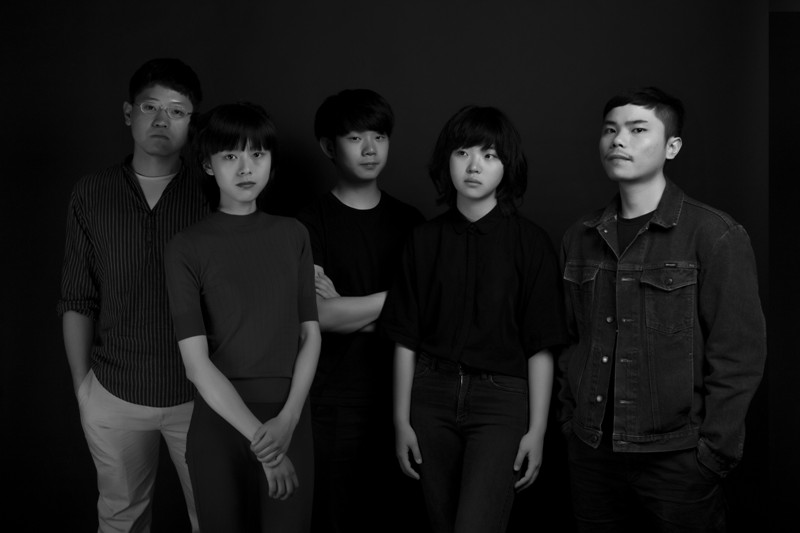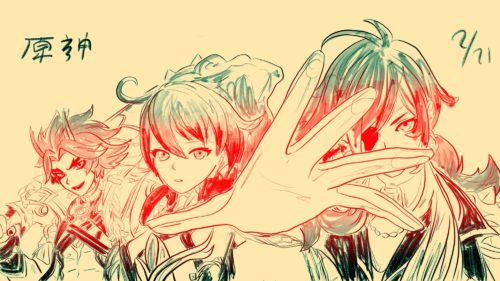The poetic songs of Hiperson

Last month, the five-person rock band Hiperson released its first EP, Four Seasons (春夏秋冬 chūn xià qiūdōng), coming on the back of two full-length albums, 2015’s I Don’t Want Another History (我不要别的历史 wǒ bùyào bié de lìshǐ) and 2018’s She Came Back from the Square (她從廣場回來 tā cóng guǎngchǎng huílái). Four Seasons was immediately followed up with the release of two singles, “You Turn My Face to Another Day” and “Night Walk,” which were well timed: Hiperson will be playing at SXSW in Austin next year, as well as touring Europe for the second time.
The songs on Four Seasons were originally poems, and it shows: frontwoman Chen Sijiang’s voice delivers the jam-packed and, at times, quite abstract lyrics with a calm that encourages listeners to accept the premise. “Strawberries,” for example, is a ballad to an “unlucky strawberry” (倒霉的草莓 dǎoméi de cǎoméi) that influences the protagonist in deep and time-bending ways.
The climax of the song is a punk-trance repetition of the lyric, “We are all only looking at you” (我们只都看着你 wǒmen zhǐ dōu kànzhe nǐ). While this collective gaze is directed at the down-on-its-luck strawberry, the meticulous repetition of the lyric makes the listener feel simultaneously part of the watched and the watchers. The image that comes to mind is a group of people staring (and perhaps pointing) at the unlucky strawberry, serenading it with the slightly off-putting fact that it is the only thing the group is looking at. This inspires a bit of that accusatory examination to be directed inward as well; the listener might think, why exactly am I obsessing over this thing?
Fittingly, Four Seasons has four tracks. “Strawberries” — representative of spring — kicks it off, and is followed by “Summer Air” (a rather somber take on summer that is offset by cutting guitar licks), then the relatively upbeat and lyrically witty “Tramp’s Song.” The EP finishes with “Liangshan,” representing winter.
“Liangshan” tells the story of returning home to Liangshan, or Liangshan Yi Autonomous Prefecture (凉山彝族自治州 liángshān yízú zìzhìzhōu), and meditating on the village’s development. In reality, it differs greatly from the speaker’s memory of it. Liangshan’s sites of natural beauty are marred by the construction of “these confused and short little houses.” The poem is about a place that isn’t what it’s supposed to be nor is it something recognizably new. The speaker lingers on what cannot be destroyed: the smoke, the snow, the morning — and her own presence.
Strawberries
倒霉的草莓中了我的圈套
Unlucky strawberry, stuck in my trap
我把所有人的目光聚集在你身上灼烧
I take everyone’s gaze and fix it on you, letting it burn
我把我前世今生的心脏叠加在你的身上
I take the heart of my previously incarnated selves and overlay them on your body
倒霉的草莓
Unlucky strawberry
谁叫你那么美?
Who made you so beautiful?
Liangshan
被弃的烟带像雪一样白
Abandoned smoke, white as snow
雪 越下越喑哑
Snow getting mute,
像匍匐的高山一样喑哑
mute like the creeping mountains
女人的高跟鞋
Women’s high heels
击打湿漉漉的水泥
hitting damp concrete,
用来建造这些凌乱矮小的房子的水泥
which used to build these confused and short little houses
笃笃笃
Du Du Du
在这样一个
At this kind of
不是故乡的
not hometown,
黯淡下去的
dismal descending
有雪的清晨
snowy morning
Friday Song is SupChina’s weekly sign-off. Let us know what you thought of the week that was in the comments below, or email editors@thechinaproject.com.





